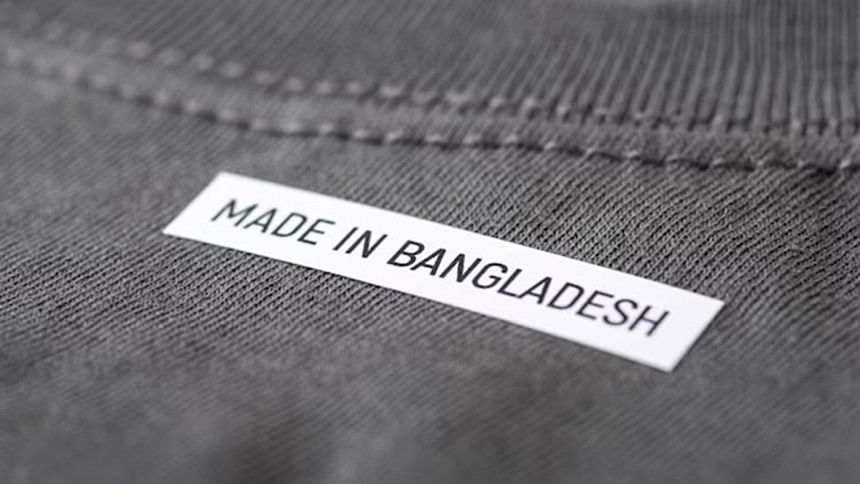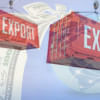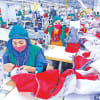Tariff twist leaves exporters on edge

- Bangladesh holds 9% share of US apparel import market
- Nearly 24% of Bangladesh's total garment exports flow into US
With a sweeping US tariff order set to take effect on April 9, Bangladesh's garment exporters remain in the dark about exactly how much duty their products will face -- and whether the new rate will be added to or replace existing tariffs.
President Donald Trump's April 2 executive order imposes a 37 percent ad valorem tariff on imports from Bangladesh, but the order provides no product-specific rate table or customs guidance, fuelling confusion across Bangladesh's largest export sector.
If the 37 percent is added on top of existing US duties, as many fear, Bangladesh's effective tariff on garments will jump to 48.56 percent from the current average of 11.56 percent. That would mean a $100 shipment of T-shirts or jeans from Dhaka would face nearly $49 in import taxes at a US port, compared to just $11.56 now.
"We're preparing for the worst-case scenario because the order clearly refers to this as an 'additional' tariff," said Syed M Tanvir, managing director of Pacific Jeans, one of the country's largest denim exporters. "But we won't know for sure until April 9."
The White House statement says the "rates of duty established by this order are in addition to any other duties, fees, taxes, exactions, or charges applicable." But it offers no further breakdown by country or product.
"We are not clear yet," said Mahbubur Rahman, secretary at the Ministry of Commerce. "It could be 37 percent, or it could be over 52 percent if added to current Most Favoured Nation [MFN] rates, which for Bangladesh are already above 15 percent on many items."
Sharif Zahir, managing director of Ananta Group, said his company has not received updated tariff information from buyers yet. But different sources suggest both possibilities -- that the 37 percent could either replace or stack up on top of existing rates.
BRANDS SIGNAL HIGHER RATES
Anwar Hossain, administrator of the Bangladesh Garment Manufacturers and Exporters Association and vice-chairman of the Export Promotion Bureau, said one US-bound apparel brand has already informed them that the new rate for Bangladesh may indeed be 48.56 percent.
"We're preparing our strategy based on that assumption," he said. "And the executive order clearly frames it as an additional duty."
Anwar Hossain also said the measure, while framed as a tariff adjustment, is rooted in broader US concerns over persistent trade deficits.
"The US is a trading economy that depends on imports," he said. "This move isn't just about duties. It's about shifting trade flows in Washington's favour," he said.
Experts have estimated how the policy could impact other top apparel exporters. While these numbers have not been released by the US government, they offer a preview of how global sourcing might shift:
China's total apparel tariff could reach 65.5 percent, while Vietnam's may rise to 57.5 percent. India's rate could reach 38.47 percent, Indonesia's 43.45 percent, Cambodia's 60.7 percent and Pakistan's 41.46 percent.
Bangladesh holds a 9 percent share of the US apparel import market. Nearly 24 percent of Bangladesh's total garment exports flow into the United States.
The US is Bangladesh's single largest export destination. In 2024, the country shipped $7.4 billion worth of garments to America, making it the third-largest apparel supplier after China and Vietnam. The sector employs more than four million workers and accounts for over 80 percent of Bangladesh's exports.
Exporters and policymakers agree the time to act is now.
"We have the production capacity and competitive edge," Zahir said. "But if other countries end up with lower tariff rates, we'll lose ground fast."
The commerce ministry is preparing formal communication to the Office of the US Trade Representative, and exporters are urging immediate negotiations.
"Other countries have already started talking," said Tanvir. "We need to do the same — and fast. There's still a chance to find a workable outcome."
Chief Adviser Muhammad Yunus held an emergency meeting yesterday to discuss the potential impact of the new US tariff policy on Bangladesh, as the country scrambles to assess its options ahead of the April 9 implementation deadline.

 For all latest news, follow The Daily Star's Google News channel.
For all latest news, follow The Daily Star's Google News channel. 







Comments